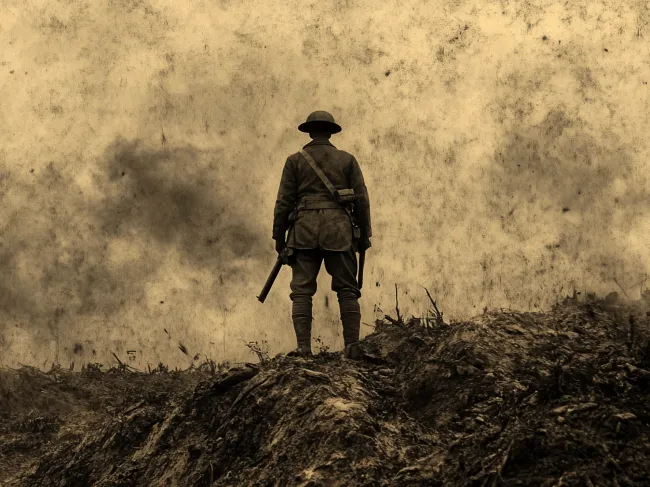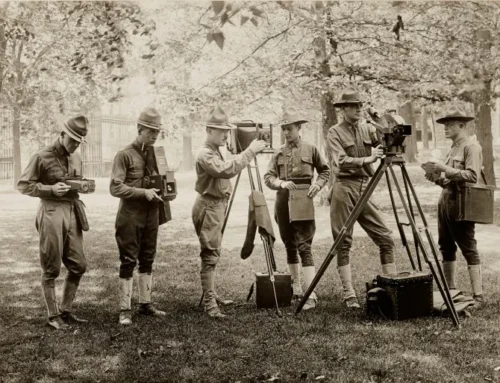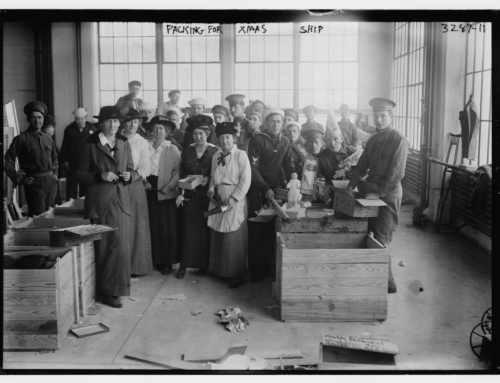Relearning the Lessons We Never Learned from World War I
Published: 23 May 2025
By Jorge Besada
via the Mises Wire website

AdobeStock_WWI.jpeg
On August 10, 1915, British physicist Henry Mosely—who would’ve likely won the Nobel Prize that year—died in perhaps the most disastrous error mankind has thus far made, The First World War (1914-18). Bright and pious fellow humans that had absorbed German, French, British, Russian “identities”; students, fathers, engineers, “great minds,” and “experts,” who even shared a common European Christian heritage, reverted to their tribal ape-like nature. For “God, honor, flag, and country” they slaughtered each other, leading to about 20 million deaths and millions more left invalid. At 7:30 am, July 1, 1916 the Battle of the Somme began. On this single day, the British had about 20,000 fatalities and 35,000 wounded. Once the fighting commenced, a British soldier was killed or wounded on average every second. Taking into account about 12,000 German casualties, every 5 seconds 6 people would be killed or wounded.
Militaries—usually being the biggest competition-immune monopolies, protected by flag-waving tribalism—tend to be the most wasteful and slow changing bureaucracies around. By the beginning of the 20th century, the machine gun had already proven its worth, making cavalry charges and frontal assaults disastrous tactics. As military technology improves, toughness, valor, determination, etc. become less and less important, wounding our manly pride, and especially that of those cavalry men who were once formidable fighters, men like British Generals Douglas Haig and John French. Instead of using their reason and putting their flamboyant cavalry-riding years behind them, they spent their lives defending old techniques and downplaying the superior effectiveness of newer weapons like planes, tanks, and machine guns, at the expense of thousands of soldiers. In his 1907 book, Cavalry Studies, Haig declared that “the role of Cavalry on the battlefield will always go on increasing.” War historian John Ellis writes that according to:
…the British Cavalry Training Manual of 1907: “It must be accepted as a principle that the rifle, effective as it is, cannot replace the effect produced by the speed of the horse, the magnetism of the charge, and the terror of cold steel.” Luckily for the Germans, in the First World War, they used machine guns, pill boxes and barbed wire that seem to have been immune to such awesome tactics. That it took the British generals so long to get this through their heads is partly explained by the fact that nearly all of them were cavalry men. Thus Haig, in 1904, attacked a writer who “sneers at the effect produced by sword and lance in modern war; surely he forgets that it is not the weapon carried but the moral factor of an apparently irresistible force, coming on at highest speed in spite of rifle fire, which affects the nerves and aim of the…rifleman.” But rare were the cavalry men who came on in spite of sustained machine gun fire. Haig, above all people, should have learnt this simple lesson. Yet in 1926, in a review of a book by Liddell-Hard, Haig asserted that though there were some blasphemous spirits who thought that the horse might become extinct, at least on the battlefield, “I believe that the value of the horse and the opportunity for the horse in the future are likely to be as great as ever…. Aeroplanes and tanks are only accessories to the man and the horse, and I feel sure that as time goes on you will find just as much use for the horse—the well-bred horse—as you have ever done in the past.”
The “honor” of a military career would lead to disproportionately higher losses for the upper classes for all belligerents. Germany’s top general—Erich Ludendorff—lost two sons, as would future British Prime Minister Andrew Bonar Law. The British PM at the start of the war—Herbert Asquith—lost one. While about 12 percent of British troops would die in the war, 31 percent of Oxford’s 1913 graduating class would die. This should help abolish the popular myth that politicians are quick to bring about wars while wanting to avoid personal losses in them. Unfortunately, from an evolutionary perspective-hypothesis, human beings are tribal smarter apes that have been naturally selected to be vicious killers and to enjoy violence. Warfare-predation was an important evolutionary strategy and likely one of the reasons we are social and have evolved big brains to begin with. As popular science author Steven Pinker writes:
…men go to war to get or keep women—not necessarily as a conscious goal of the warriors (though often it is exactly that), but as the ultimate payoff that allowed a willingness to fight to evolve.
Tribal warfare, coercing each other, rape, and “the law of the jungle,” are things we’ve likely been doing for millions of years and are somewhat intuitive. Respecting private property and refraining from coercing others, and the workings of the free market—which grows and coordinates the modern, non-tribal socioeconomic order and has arisen in the last few thousand years—are not intuitive. This helps explain why we seem to intuitively fall for both warmongering violence and wealth redistribution via government, as well as “great leader” central planning.
→ Read the entire article on the Mises Wire website.
External Web Site Notice: This page contains information directly presented from an external source. The terms and conditions of this page may not be the same as those of this website. Click here to read the full disclaimer notice for external web sites. Thank you.



